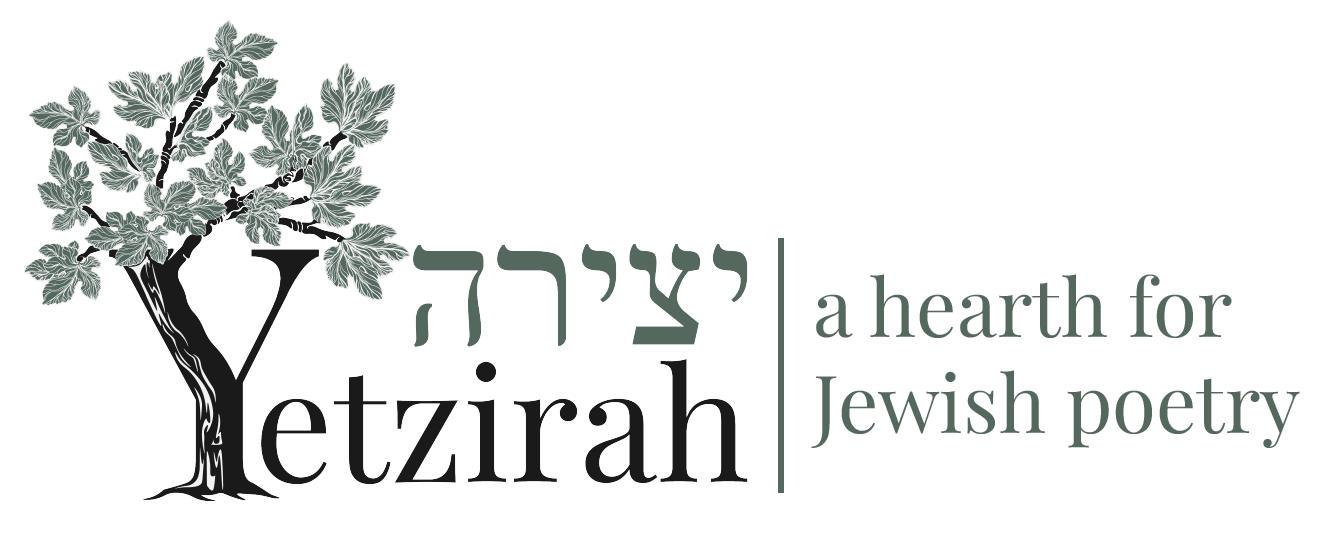2024 Jewish Poetry Conference Archive
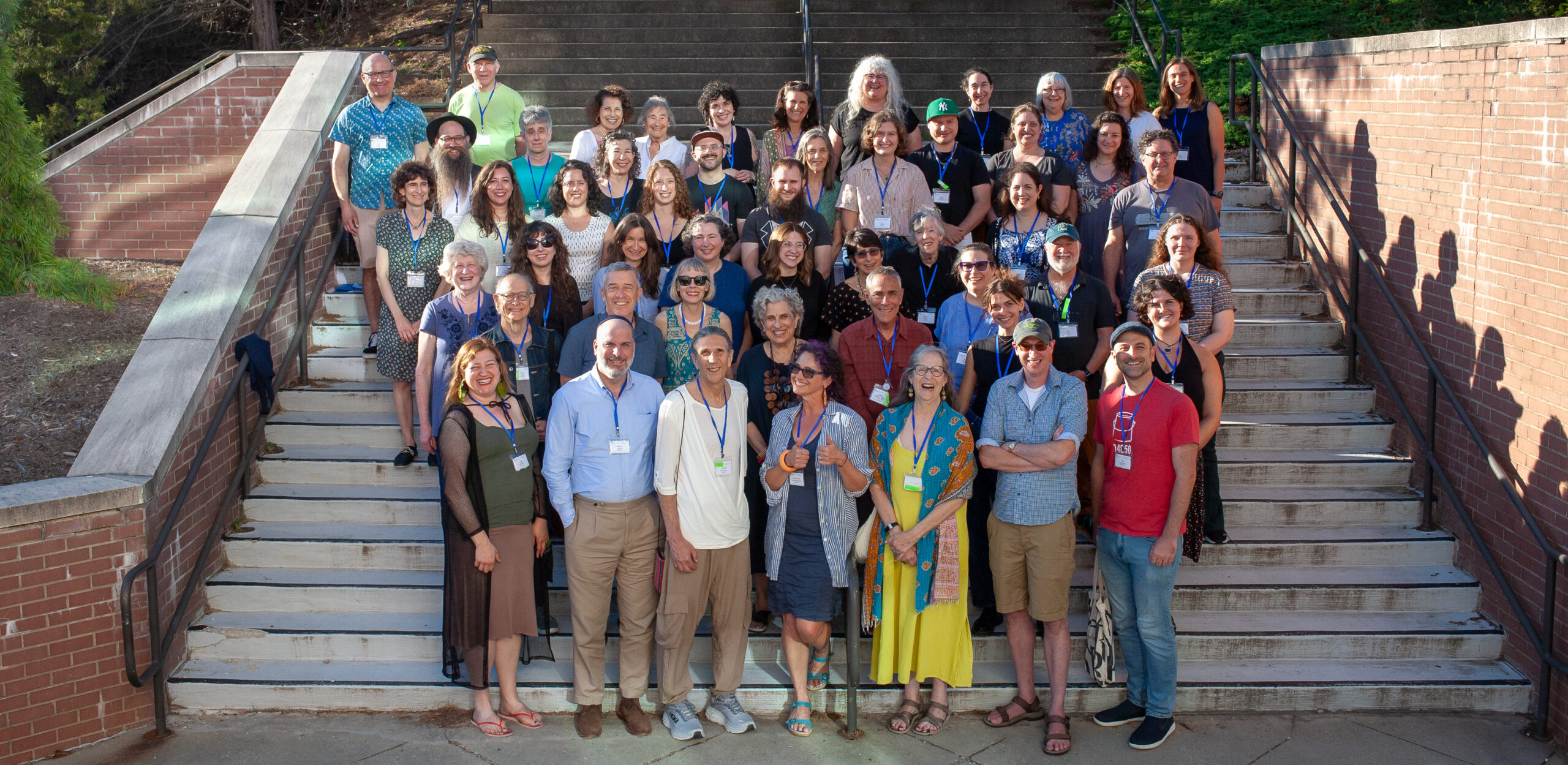
Tuesday, July 2
A Conversation & Reading
Eleanor Wilner and Alicia Ostriker
Discussion Panel: What is Jewish Poetry? Why are we here? (How is this week different than other weeks?) (Can we write as Jews without writing “Jewish poetry”?)
Dan Bellm, Jess Greenbaum, and Dana Levin
Tuesday Fellows & Faculty Reading
Aviya Kushner, David Caplan, Joanna Chen, Owen Lewis, and Dana Levin
Wednesday, July 3
Discussion Panel: Introduction to a Jewish Poet
Joanna Chen, Julie Enszer, Carlie Hoffman, and Aviya Kushner
Yetzirah Board of Directors & Staff Reading
Maya Bernstein, Richard Chess, Jehanne Dubrow, Danny Kraft, Jessica Jacobs, and Yerra Sugarman
Thursday, July 4
Discussion Panel: Poetry as Prayer
Elana Bell, Sharon Dolin, Richard Michelson, and Yehoshua November
Scholars & Offsite Faculty Reading
Talia Bloch, Ori Fienberg, Zach Goldberg, Tikva Hecht, Rachel Kaufman, Dan Kraines, Miles Liss, Hannah Silverstein, Dick Westheimer, and Hila Ratzabi
Thursday Fellows & Faculty Reading
Julie Enszer, Carlie Hoffman, Dan Rosenberg, Rebecca Aronson, and Dan Bellm
Friday, July 5
Contributors Reading
Ayelet Amittay, Suzanne Brody, Hannah Butcher-Stell, Melisa Cahnmann-Taylor, Susan Coronel, Mark Elber, Valerie Bandura Finn, Tzivia Gover, Josh Jacobs, Anne Myles, Lesléa Newman, Jane Saginaw, Cindy Savett, Robin Silbergleid, and Amy Small-McKinney
Friday Fellows & Faculty Reading
Sharon Dolin, Rich Michelson, Yehoshua November, Elana Bell, and Jessica Greenbaum
*All those who join us for this reading are invited to stay for a Kabbalat Shabbat service, led by Contibutor Rabbi Mark Elber
Thank you to our conference partner
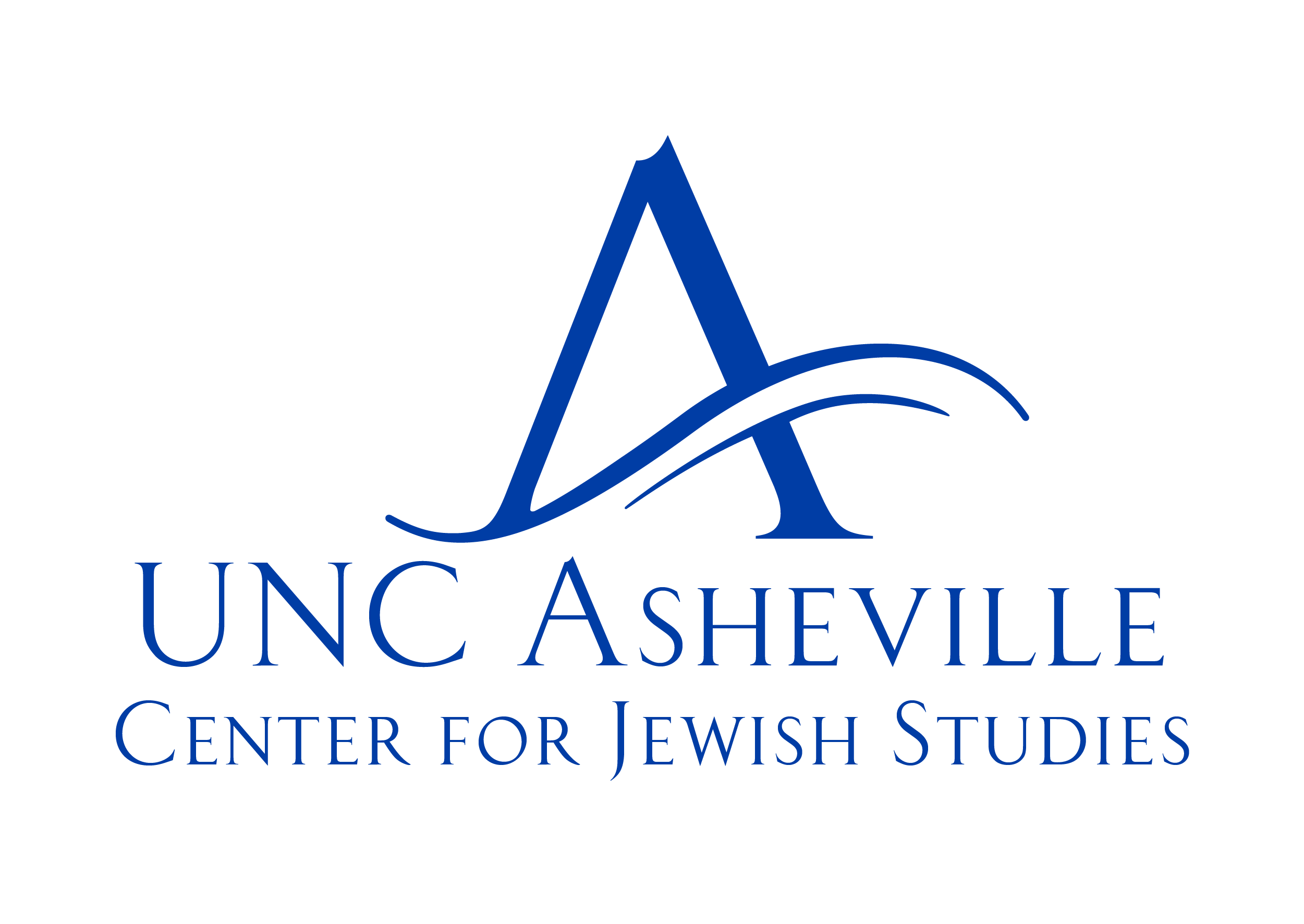
And gratitude to our local supporters
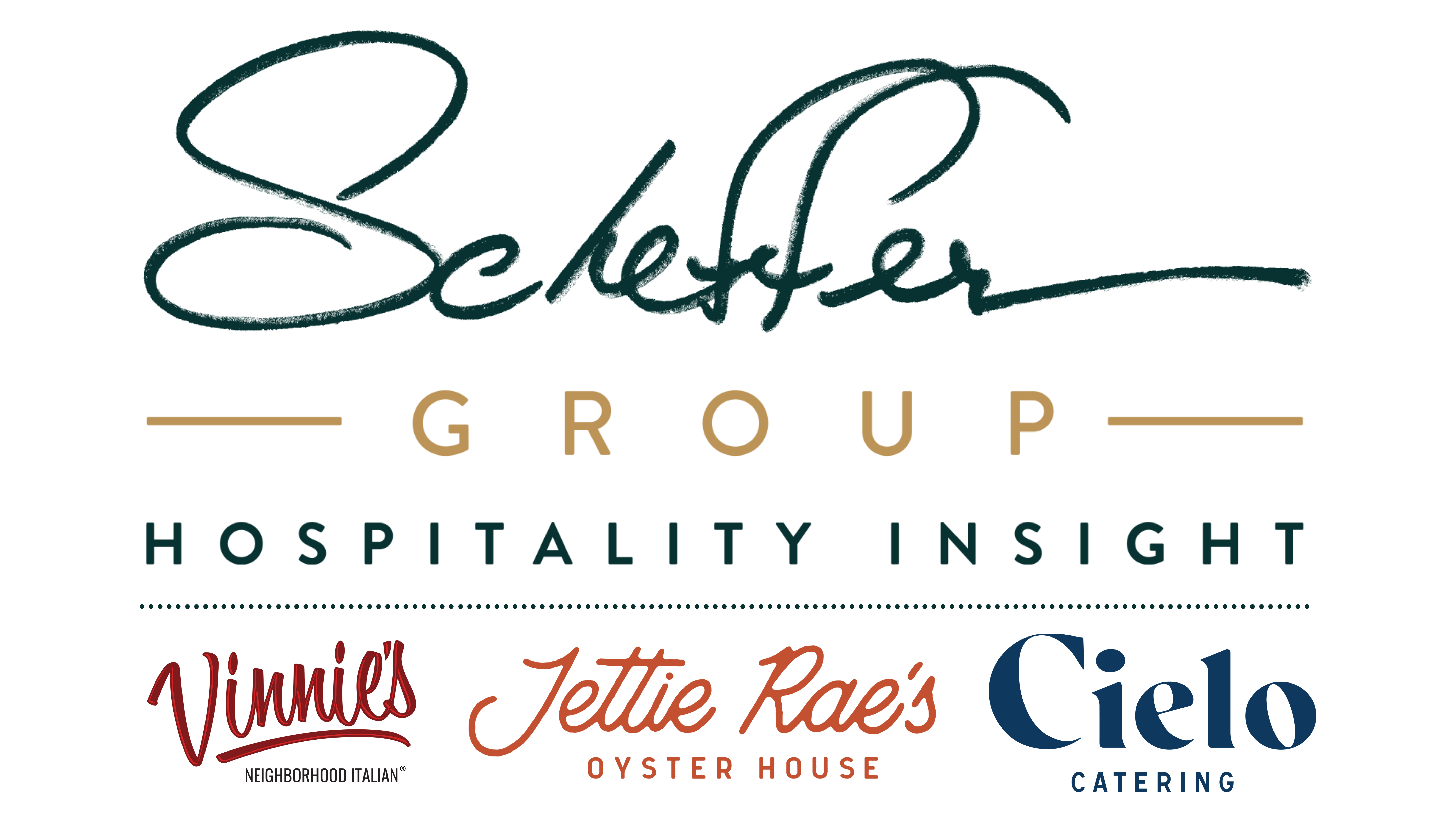

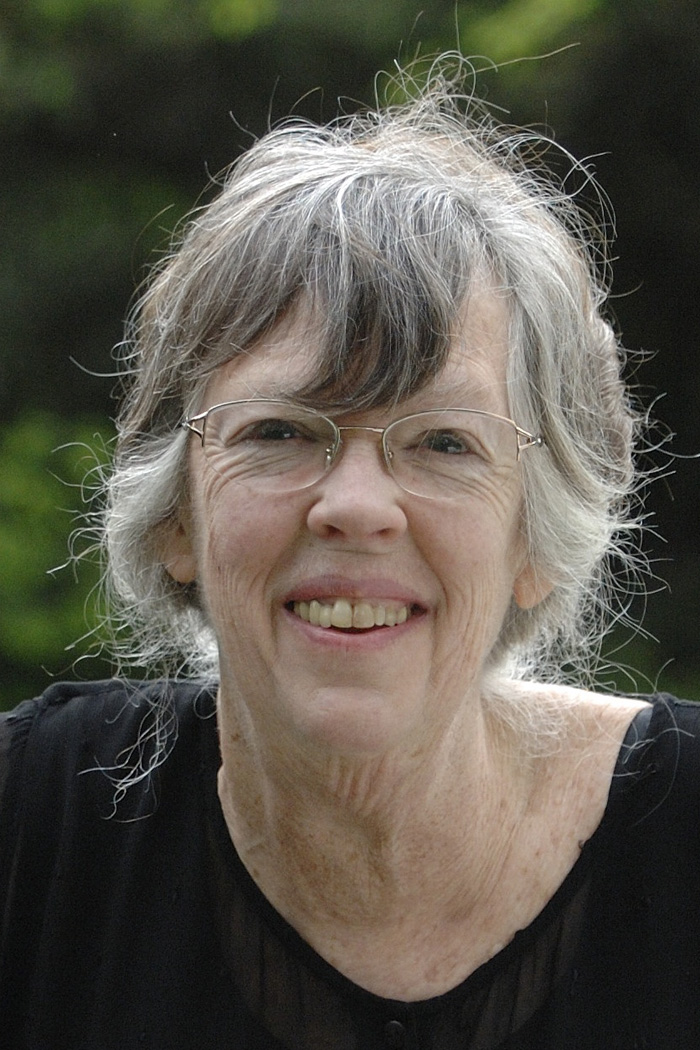
Keynote Speaker
Poet, translator, scholar and activist Eleanor Wilner has received many honors, including the 2019 Frost Medal of the Poetry Society of America for Lifetime Achievement and a MacArthur Foundation Fellowship (1991-1996). Her eighth and most recent collection, Before Our Eyes: New and Selected Poems 1975-2017, is a remarkable rewriting of the myths of life and art by one of the most vital and original voices in American poetry. Wilner’s work is far-ranging and widely anthologized, and she has participated in a number of multi-disciplinary collaborations in music and dance. On the faculty of the MFA Program for Writers at Warren Wilson College for thirty years, Wilner makes her home in Philadelphia, though she has been Visiting Writer in Hawaii, Iowa, and Japan, and at the University of Iowa, Northwestern, University of Chicago, and Smith College.
Workshop Faculty
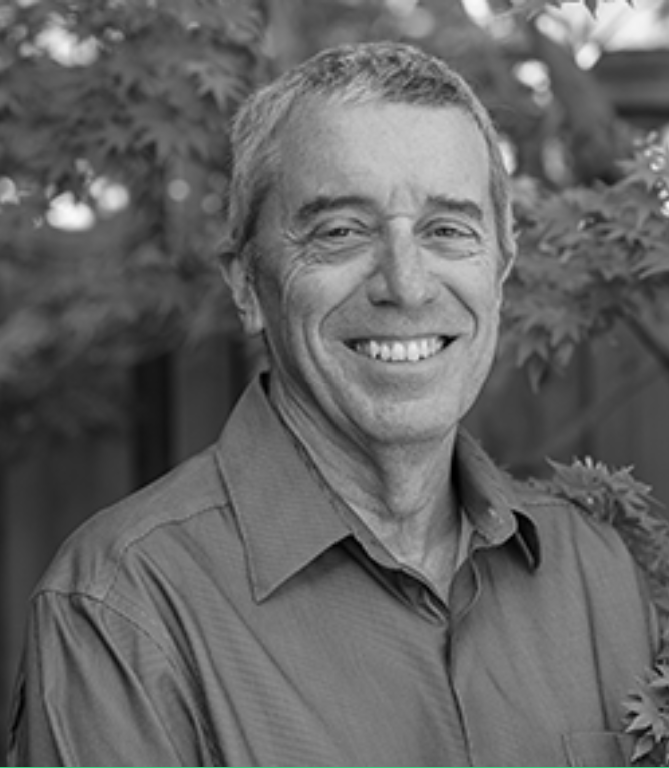
Dan Bellm, a poet and translator living in Berkeley, California, has published five books of poems, including Counting (Finishing Line Press, Georgetown, KY, 2023), Deep Well (Lavender Ink, New Orleans, 2017), and Practice: A Book of Midrash (Sixteen Rivers, San Francisco, 2008), winner of the 2009 California Book Award. Recent translations include Central American Book of the Dead, by Balam Rodrigo (Flower Song Press, McAllen, TX, 2023), Speaking in Song, by Pura López Colomé (Shearsman Books, Bristol, UK, 2017), and The Song of the Dead, by Pierre Reverdy (Black Square Editions, New York, 2016), winner of an Artist’s Fellowship in Translation from the National Endowment for the Arts. He has taught literary translation and poetry in the MFA in Creative Writing Program at Antioch University Los Angeles, and at Mills College, and he serves as an interpreter for asylum seekers with Centro Legal de la Raza, Oakland, California.
DAN BELLM: OLD AND NEW: POETRY AND MIDRASH
I’m a man with none of the answers and all of the questions.—Yehuda Amichai
Don’t translate what I said, but what I meant to say.—Jorge Luis Borges
Midrash is an ancient form of Biblical interpretation, imaginatively explaining or expanding a sacred text beyond its apparent or literal meaning. Like poetry, midrash thrives on anomaly, ambiguity, the play of words. In modern usage, midrash refers to the practice of making meaning from the Torah (the first five books of the Hebrew Bible) and other Biblical texts: we re-imagine familiar stories, we contemplate their strangeness, we tell the untold parts. Which was created first, for example: heaven or earth? (The first two chapters of Genesis appear to contradict each other on this point.) Why does the Torah begin with the second letter of the alphabet (bet), and not the first (aleph)? Where is Sarah in the story of Abraham’s binding of their son Isaac? (There is no mention of her at all.)
In this workshop we’ll try our hand at developing and writing our own midrashim— commentaries, interpretations, legends—in response to a portion of the Torah. We’ll study a few Biblical passages, look at how other writers (ancient and modern) have responded to these texts, and ask midrashic questions of our own. Our aim will be to write freely, adventurously, getting the start of something new, or rather, something old-and-new.
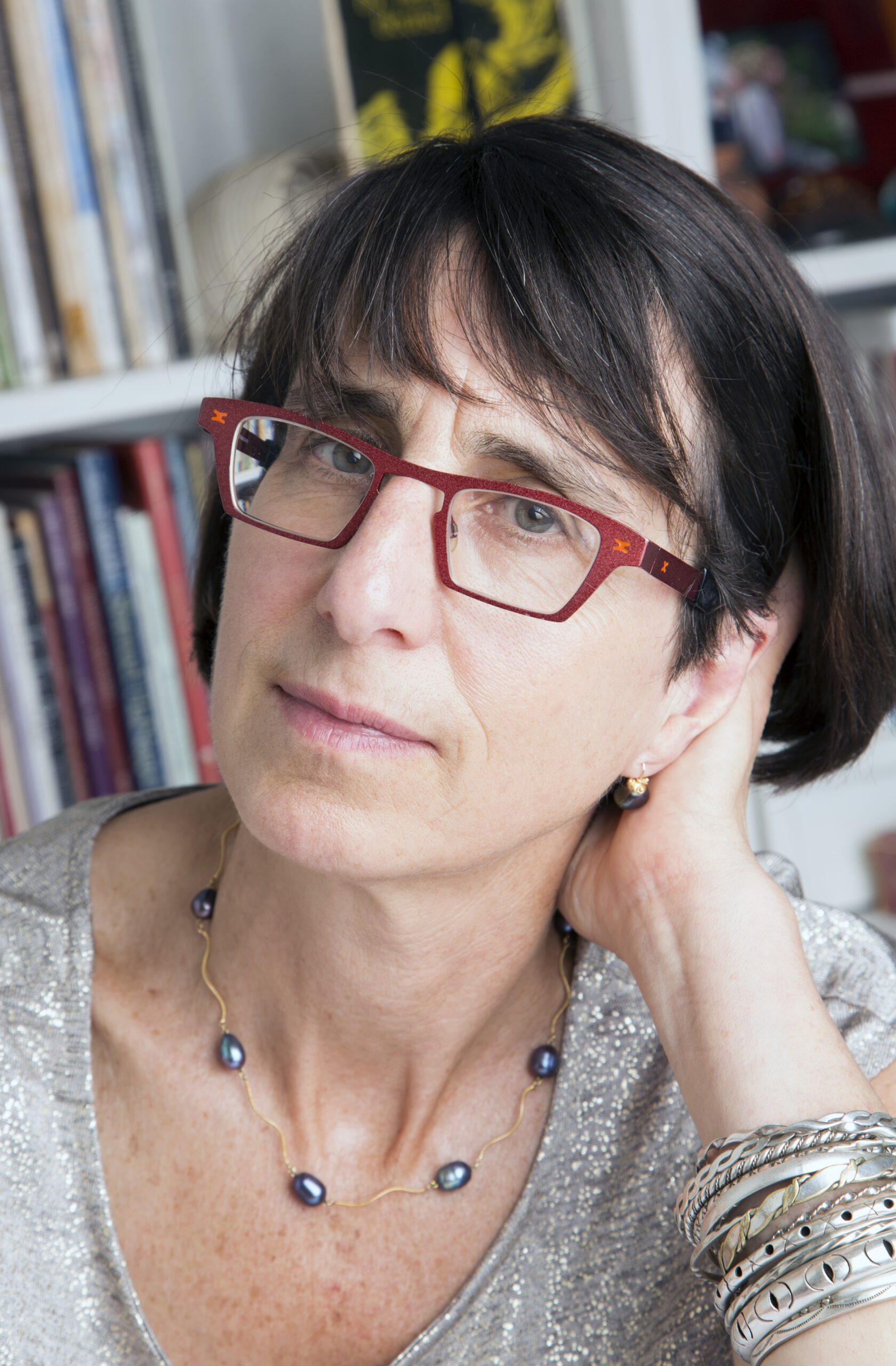
Jessica Greenbaum is a writer, teacher and social worker living in Brooklyn. Her first book came out from the Gerald Cable Prize, her second was chosen by Paul Muldoon for the Princeton Series of Contemporary Poets and by Library Journal as a best book, and of her third book, Grace Shulman complimented “a brilliant use of metaphor,” and said the poems were “enlivened by keen observation, a fresh mind, and a vivid sense of place that makes me want to be there, with her, in her world.” The Boston Globe named it a best book of year. With Rabbi Hara Person she co-edited the first ever poetry Haggadah, and is a co-editor with poets Jennifer Barber and Fred Marchant of a forthcoming anthology of 21st century poems about trees. Recipient of awards from the NEA and the Poetry Society of America, she teaches inside and outside academia, sometimes around Jewish text, and sometimes for communities who have experienced trauma. She has taught classes she designs at Manhattan’s Central Synagogue since 2015, and recently taught poetry writing classes at Barnard College, Vassar College and Brooklyn Poets (where she is on the board). As a social worker she has designed classes for people who have left ultra-Orthodoxy through the organization Footsteps, with 9/11 first responders through NYU Langone hospital, and with survivors of childhood brain tumors through the Children’s Brain Tumor Foundation. She is always looking to work with groups where poetry that is accessible to read, provocative to discuss, and fun to use as models, encourages the coherence of both community and self-discovery.
JESSICA GREENBAUM: Synchronized, and Watching: A Jewish Ethos of Writing about the Earth
This generative workshop recognizes our fundamental partnership, through Jewish values, with poems about nature. Beginning with Torah’s instruction to “Turn it, and turn it again” we locate that shared Jewish/poetic scrim of close observation within the earth’s turning orbit. We will look at the living armature of havdalah—the power of separation in poems and in nature—and Pirkei Avot’s urgent encouragement, “You are not obligated to complete the work, but neither are you free to desist from it,” which speaks to the exigency of responding to our frightening, flooding, drought- and fire-filled time. How might these ancient teachings deepen our experience of Judaism, of reading and writing—and of nature?
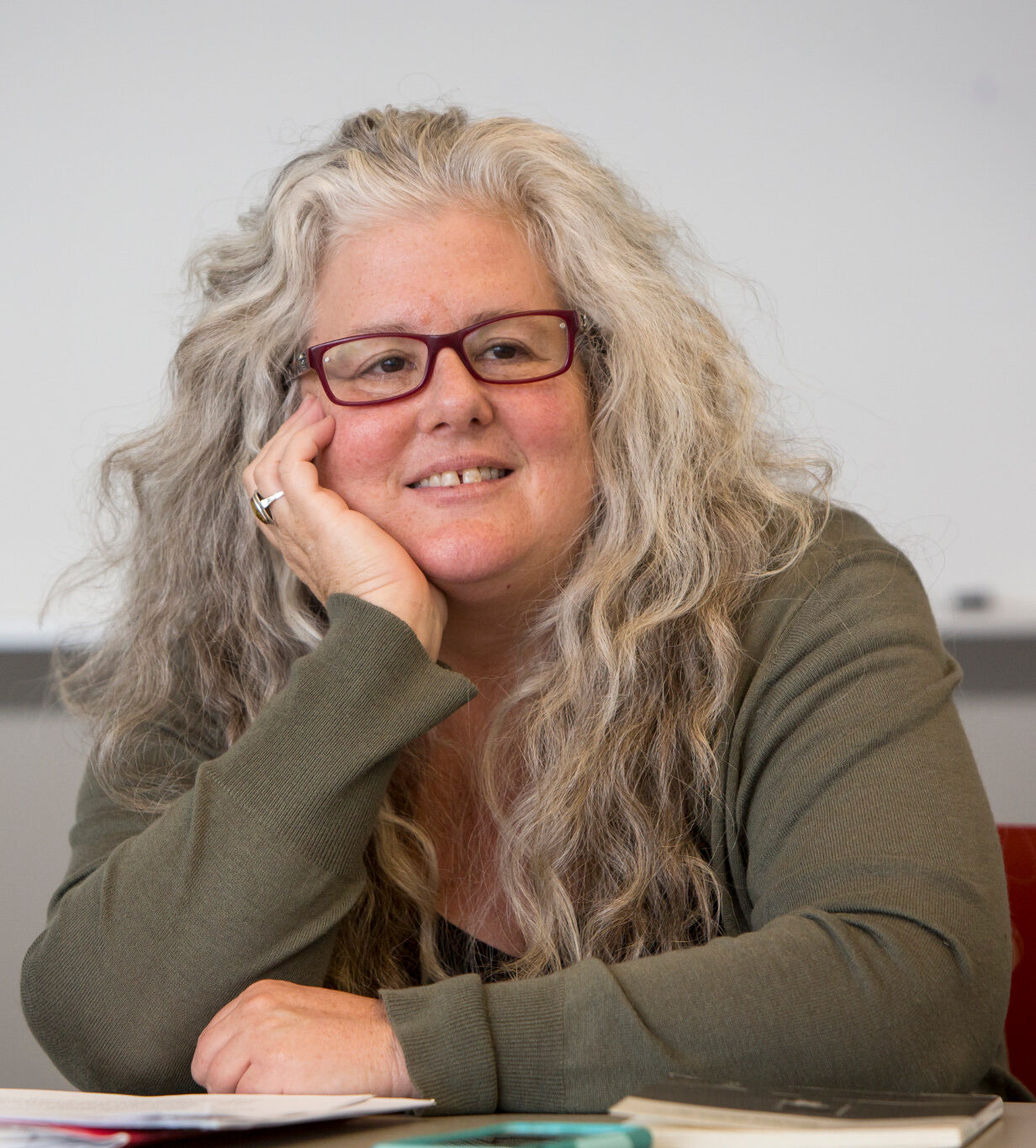
Dana Levin’s fifth book is Now Do You Know Where You Are (Copper Canyon, 2022), a New York Times Editor’s Choice and a Lannan Literary Selection. Recent books include Banana Palace (2016) and Sky Burial(2011), which The New Yorker called “utterly her own and utterly riveting.” Her first book, In the Surgical Theatre (1999), received the APR/Honickman First Book Prize, chosen by Nobel Laureate Louise Glück. Levin is a grateful recipient of many honors, including those from the National Endowment for the Arts, PEN, and the Library of Congress, as well as from the Rona Jaffe, Whiting, and Guggenheim Foundations. Levin teaches in the MFA Program for Writers at Warren Wilson College, and serves as Distinguished Writer in Residence at Maryville University in St. Louis.
DANA LEVIN: Raising Sparks: Breaking, Finding, Gathering, Mending Poems
In the sixteenth century, Rabbi Isaac Luria transformed Kabbalistic teaching by extolling the necessity of “raising sparks”: nitzotzot, the lit shards from the broken vessels of the Tree of Life, which shattered when the light of I AM lasered through them to ignite Creation (the vessels couldn’t withstand the pure power of God’s presence; leave it to Jews to view the world as a work-place accident!) Luria taught that holy sparks adhered, hidden, to everything; a person’s primary task was to find the hidden sparks in self and world and raise them back up to God: tikkun, the act of mending. In this workshop, we’ll look at poems by Louise Glück, Paul Celan, and Arthur Sze as exemplars of breaking and mending, of gathering shards, finding the hidden, and raising sparks—then, we’ll begin to do this re/generative work ourselves.
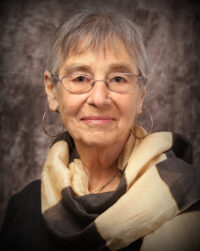
Manuscript Faculty
Alicia Ostriker has published seventeen volumes of poetry, including The Volcano and After; Waiting for the Light; The Old Woman, the Tulip, and the Dog; The Book of Life: Selected Jewish Poems 1979-2011; No Heaven; The Volcano Sequence; and The Imaginary Lover, winner of the William Carlos Williams Award. She was twice a National Book Award Finalist, for The Little Space (1998) and The Crack in Everything (1996), and twice a National Jewish Book Award winner. Her poetry has appeared in The New Yorker, American Poetry Review, The Atlantic, Paris Review, Yale Review, Ontario Review, The Nation, The New Republic, Best American Poetry, The Pushcart Anthology, and many other journals and anthologies, and has been translated into numerous languages including Hebrew and Arabic. Ostriker’s critical work includes the now-classic Stealing the Language: the Emergence of Women’s Poetry in America, and other books on American poetry and on the Bible.
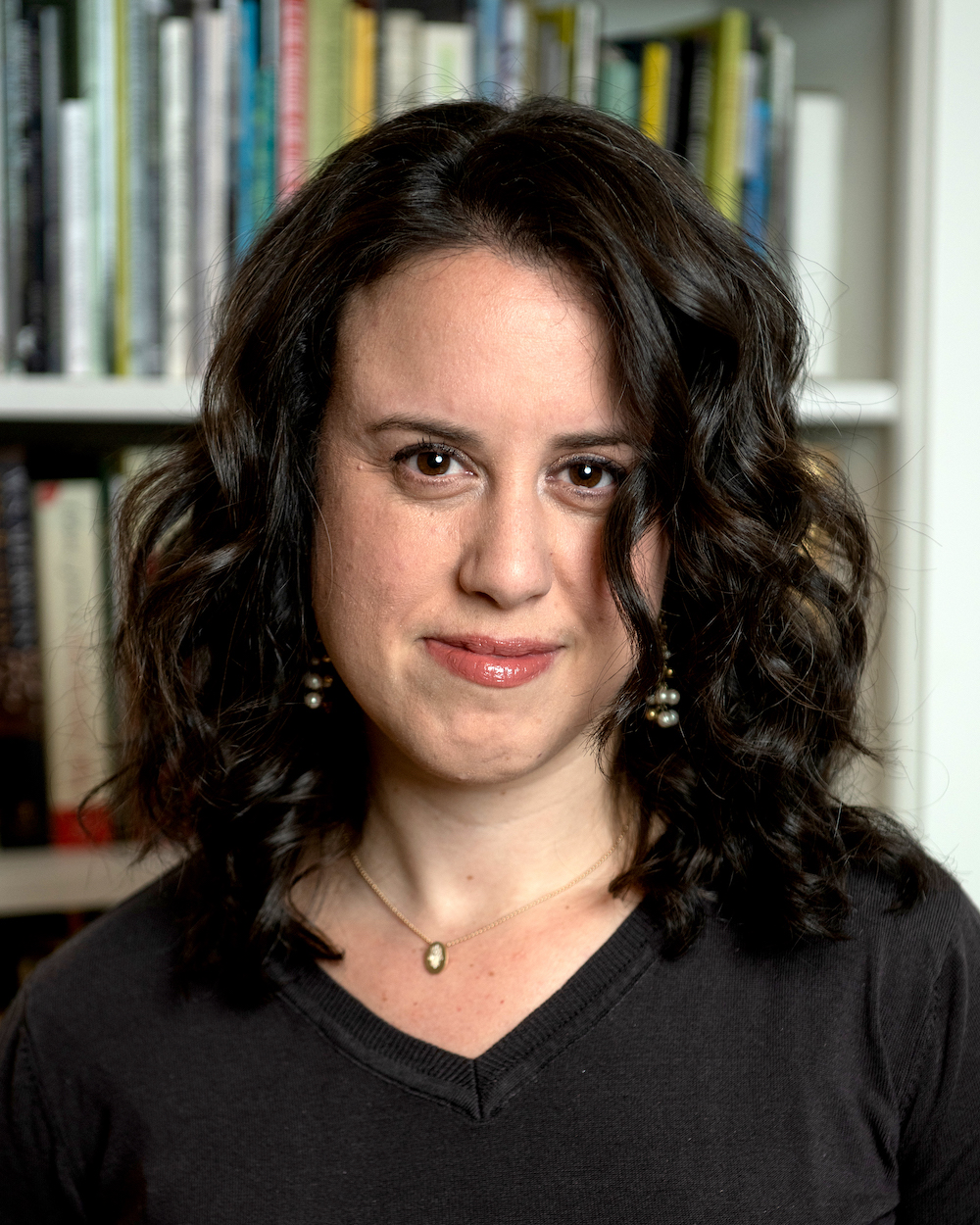
Offsite Generative Workshop Faculty
Hila Ratzabi is the author of There Are Still Woods (June Road Press, 2022), which won a gold Nautilus Book Award and was a finalist for a National Indie Excellence Award. Her poetry has been published widely in literary journals and in The Bloomsbury Anthology of Contemporary Jewish American Poetry and Ghost Fishing: An Eco-Justice Poetry Anthology. She holds an MFA in Poetry from Sarah Lawrence College, a BA in English/Creative Writing from Barnard College, and a BA in Jewish Philosophy from the Jewish Theological Seminary. Ratzabi regularly offers poetry workshops, has presented panels at the AWP writing conference and elsewhere, and has served as a curator of multiple reading series and as editor-in-chief of the literary journal Storyscape. From 2015–2023, she ran Ritualwell.org, publishing innovative Jewish rituals, poetry, and liturgy and curating online learning experiences. She is currently director of communications at North Shore Congregation Israel in Glencoe, Illinois, and lives in Oak Park outside Chicago.
2024 Cohort, Staff, & Board
Fellows
Rebecca Aronson
Elana Bell
David Caplan
Joanna Chen
Sharon Dolin
Julie Enszer
Carlie Hoffman
Aviya Kushner
Owen Lewis
Richard Michelson
Yehoshua November
Dan Rosenberg
Conference Staff
Shelby Sizemore, Conference Manager
Cory Weller, Photographer
Rachel Blum, Intern
Alexa Hulse, Intern
Kylee Rieger, Intern
SJ Waring, Intern
2024 Board of Directors & Staff
Jessica Jacobs, Founder, President, & Executive Director
Jehanne Dubrow, Vice President & Readings Series Curator
Rick Chess, Treasurer
Yerra Sugarman, Secretary
Maya Bernstein, Board Member
Danny Kraft, Program Manager
